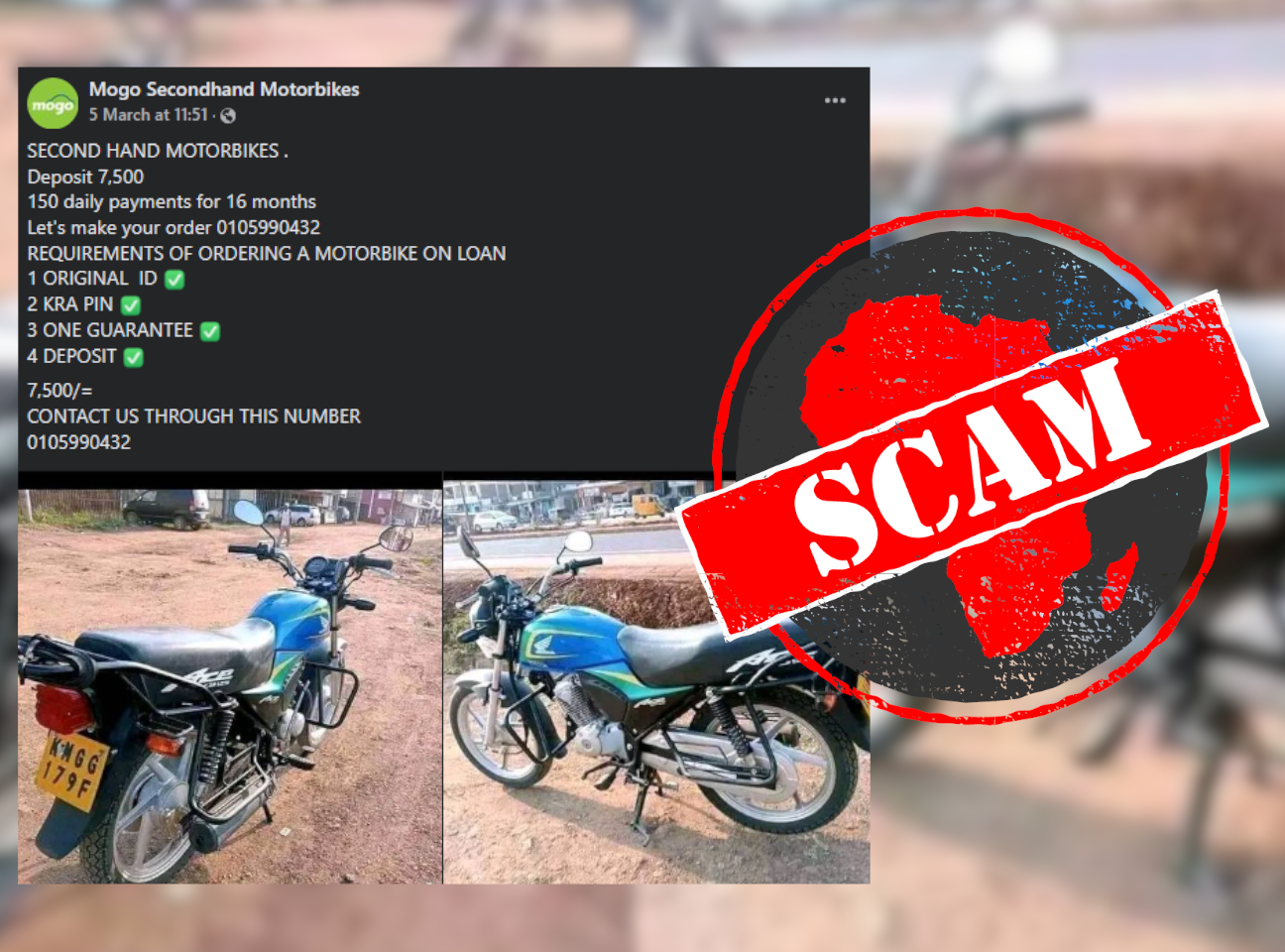IN SHORT: Many young Kenyans would like to own their own motorbike and earn a living from the thriving motorbike taxi industry. But beware, these three Facebook pages offering bikes on credit are out to scam you.
The Facebook pages Mogo Secondhand Motorbikes, MOGO KENYA and Alfred Mogo are offering motorbikes on credit to Kenyans.
The pages use the name and logo of MOGO, an asset finance company operating in Kenya, to advertise their offers.
A typical post on one of the pages, this one dated 5 March 2024, reads: “SECOND HAND MOTORBIKES. Deposit 7,500 and 150 daily payments for 16 months. Let's make your order 0105990432.”
Some posts include offers on tuk-tuks, the three-wheeled taxis popular in Kenya. Kenya has a thriving motorbike taxi industry that provides an income for many young people and their families.
Applicants are asked to submit their identity card number, Kenya Revenue Authority details, a guarantor and the first payment.
The pages have posted the offers here, here, here, here, here, here, here, here, here, here, here, here, here, here and here.
But are the Facebook pages and their offers legit? We checked.

Scam offers
Legitimate organisations would normally have social media pages linked to working websites. But none of the pages link to a website. This means that users don’t have access to more information about the nature of their business, which is a red flag.
We visited MOGO’s website and found links to its official social media accounts, including Facebook.
Its official Facebook page MOGO Kenya has more than 57,000 followers. Its “transparency section” shows that it was created on 25 March 2019.
None of the numbers listed on the three Facebook pages – 0105990432, 0712168449 and 0735296945 – can be found on MOGO’s website.
The pages are run by imposters and their offers should be avoided.
To help protect yourself from online fraudsters, read Africa Check’s guide to Facebook scams and how to spot them.
Republish our content for free
For publishers: what to do if your post is rated false
A fact-checker has rated your Facebook or Instagram post as “false”, “altered”, “partly false” or “missing context”. This could have serious consequences. What do you do?
Click on our guide for the steps you should follow.
Publishers guideAfrica Check teams up with Facebook
Africa Check is a partner in Meta's third-party fact-checking programme to help stop the spread of false information on social media.
The content we rate as “false” will be downgraded on Facebook and Instagram. This means fewer people will see it.
You can also help identify false information on Facebook. This guide explains how.




Add new comment